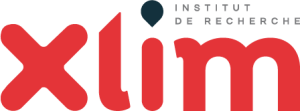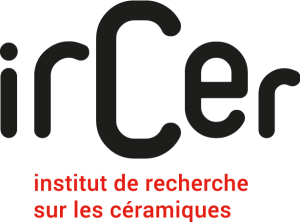Students and research
Training through research is an integral part of curriculum of the Graduate School students. Whether or not they go on to a research career afterwards, students have a lot to gain from a full immersion in a research team. They thus acquire academic qualities that are highly coveted when looking for a job:
- methodology and rigour,
- teamwork;
- the conviction to defend and argue ;
- written and oral communication techniques.
During the first year of the master, the Graduate School students already have first immersive experience in research teams in France (for foreign students) or abroad (for French students) during a 3-4 months internship. They thus have the opportunity to face with the methodology of scientific research throughout their training course.
-
Several activities are implemented during the Master:
• in M1: “Les Cordées de la Recherche” (climbing rope for research activities) + the ‘abroad internship‘;
• in M2: the ‘end-of-study internship’.
This training in and through research is still enhanced for students continuing their training with postgraduate PhD thesis.
- From the first year, students join a laboratory to carry out a research project supervised primarily by a doctoral student. In this original system called “research climbing ropes” (“Les Cordées de la Recherche”), the 1st year student is totally immersed in a research team, including the doctoral student, thesis directors and possibly 2nd year interns. The subject is defined by the doctoral student and their thesis director. The Master’s student is guided in their initiation into research by the doctoral student with the support of the thesis director who helps define the trajectory of the work together. This experience gives them the keys to refine their training project, continuing their thesis in particular, while offering doctoral students a first experience of supervision.
- The master 1 student puts into practice the methodologies learned and their disciplinary knowledge and contributes to the thesis work of the doctoral student. To carry out his project, they have access to the cutting-edge equipment of the XLIM laboratories (clean room, instrumentation room for the characterization of microwave devices, fiber tower, anechoic chamber, latest generation lasers) and the IRCER (specific powder synthesis reactors, equipment for thermal and structural characterization of materials, deposition and additive manufacturing processes) by being immersed in the research team at least half a day per week over the academic year.
- For their part, the doctoral student is trained in supervision, a skill that they will be able to use during their job search. They defines the trainee’s action plan, supports them in carrying out their experimental and/or digital work, helps them analyze the results obtained and construct the restitution of their work.
- In order to introduce the student to the presentation of scientific results in conference standards, the restitution of the work is done, in the form of, on the one hand, a poster and on the other hand, an oral presentation supported by writing a report. These two highlights punctuate the academic year and are an opportunity for scientific exchanges between EUR students, doctoral students and researchers from XLIM and IRCER.
👉 Find out more about the 2025 edition.
An international internship of 2 to 4 months in a laboratory or in a company is set up from the first year. This international experience also encourages students to go abroad for their end-of-study internship in the second year. Particular care is taken to mobilize our partners responsible for welcoming students. There are currently more than ten host countries including Finland, England, Germany, Poland, Slovenia, Italy, Spain, Portugal, Hungary, Canada, Singapore, etc.
The master’s end-of-study internship allows the student to strengthen their specialization and target an area of research towards pursuing a thesis in particular. This internship lasting 4 to 6 months is supervised by a researcher or teacher within a university or an R&D manager in a company. The quality of the internship is an essential criterion and impeccable supervision is required.
- With two internationally renowned laboratories, IRCER and XLIM offer each year a large number of M2 internship subjects for which the student will benefit from ideal supervision. Following the M2, these same laboratories also offer doctoral thesis funding each year on subjects involving or not involving companies.
- The student can also opt for a master’s internship in a company. They will then be able to benefit from the solid entrepreneurial partnership of the two laboratories IRCER and XLIM, particularly via joint research laboratories with large industrial groups (Air Liquide, Safran, Thales, etc.).
- Finally, this final internship can also take place abroad. The student will be able to benefit from the graduate school’s highly structured network of international laboratories and companies and this option may possibly prefigure doctoral theses under joint supervision between partner research establishments.
Publications
- David Köllner, Bastien Tolve-Granier, Swantje Simon, Ken-ichi Kakimoto and Tobias Fey, “Advanced Estimation of Compressive Strength and Fracture Behavior in Ceramic Honeycombs by Polarimetry Measurements of Similar Epoxy Resin Honeycombs”, Materials, 2022, 15, 2361. https://doi.org/10.3390/ma15072361
- Hekmatnejad A., Rojas E., Saavedra C., Crespin B., “Presentation of the Universal Discontinuity index (UDi) system and its application to predict the geometry of over-excavation along a tunnel at New El Teniente mine”, Engineering Geology, 311, 106901, 2022 (doi: 10.1016/j.enggeo.2022.106901)
- C. Plateau-Holleville, S. Guionnière, B. Boyer, B. Jimenez-Garcia, G. Levieux, S. Mérillou, M. Maria and M. Montes, « UDock2: interactive real-time multi-body protein–protein docking software », Bioinformatics, vol. 39, n°10, 2023 (doi.org/10.1093/bioinformatics/btad609)
- R. Ferreira, M. Ben Miled, R. Kenji Nishihora, N. Christophe, P. Carles, G. Motz, A. Bouzid, R. Machado, O. Masson, Y. Iwamoto, S. Célérier, A. Habrioux, S. Bernard, “Low temperature in situ immobilization of nanoscale fcc and hcp polymorphic nickel particles in polymer-derived Si–C–O–N(H) to promote electrocatalytic water oxidation in alkaline media”, Nanoscale Adv., 5, 701-710, 2023 (doi.org/10.1039/D2NA00821A)
- M. Cerbelaud, F. Mortier, H. Semaan, J. Gerhards, B. Crespin, R. Ferrando and A. Videcoq, » Numerical study of the effect of particle size dispersion on order within colloidal assemblies », Materials Today Communications, vol. 38, 107973, 2024 (doi.org/10.1016/j.mtcomm.2023.107973)
- A. Benazza, F. Beffara, J.-L. Auguste, M. Olivo, U. S. Dinish and G. Humbert, « Reliable and easy-to-use SERS spectroscopy probe using a tapered opto-fluidic photonic crystal fiber », Optics Express, vol. 32, n°3, p. 3440, 2024 (doi.org/10.1364/OE.501911)
- B. Moeglen Paget, K. Vinod Ram, S. Zhang, J. Perumal, S. Vedraine, G. Humbert, M. Olivo and U.S. Dinish, « A review on photonic crystal fiber based fluorescence sensing for chemical and biomedical applications », Sensors and Actuators: B. Chemical, 400 (134828), 2024 (doi.org/10.1016/j.snb.2023.134828)
- B. Moeglen Paget, J. Perumal, G. Humbert, M. Olivo and U. S. Dinish, « Optofluidic photonic crystal fiber platform for sensitive and reliable fluorescence based biosensing », Biomedical Optics Express, vol. 15, n°7, pp. 4281, 2024 (doi.org/10.1364/BOE.527248)
- A. Chrir, O. Rojas, L. Boyer, O. Durand-Panteix and P. Marchet, « Effect of post-annealing on microstructure and electrical properties of BaTiO3 thick films grown by aerosol deposition (AD) », Journal of the European Ceramic Society, vol. 44, n°6, p. 3965, 2024 (doi.org/10.1016/j.jeurceramsoc.2024.01.073)
- C. Plateau-Holleville, M. Maria, S. Mérillou and M. Montes, « Efficient GPU computation of large protein Solvent-Excluded Surface », in IEEE Transactions on Visualization and Computer Graphics, 2024 (doi.org/10.1109/TVCG.2024.3380100)
- M. Weissenberger, A. Vincent, Y. Champavier, C. Coelho Diogo, F. Babonneau, N. Pradeilles, A. Maître and R. Lucas-Roper, « Greener solvents for the processing of preceramic polycarbosilane: application in the preparation of B4C/SiC composites », Royal Society of Chemistry Advances, vol. 14, 21945, 2024 (doi.org/10.1039/d4ra04431b)
- N. Bagley, S. Wehbi, T. Mansuryan, R. Boulesteix, A. Maître, Y. Arosa Lobato, M. Ferraro, F. Mangini, Y. Sun, K. Krupa, B. Wetzel, V. Couderc, S. Wabnitz, A. Aceves and A. Tonello, « Concatenation of Kerr solitary waves in ceramic YAG: application to coherent Raman imaging », Optics Letters, vol. 50, n°2, p. 427, 2025 (doi.org/10.1364/OL.543232)
- Chrir A., Rojas O., Colas M., Boyer L., Durand O., Marchet P., « Towards lower annealing temperatures and enhanced functional properties in aerosol-deposited piezoelectric thick films: A study of the effect of Li additive on BaTiO3 films », Journal of the European Ceramic Society, 45, 116962, 2025 (doi: 10.1016/j.jeurceramsoc.2024.116962)
- Maryam S., Benazza A., Fahy E., Sekar S.K.V., U.S. D., Olivo M., Riordain R.N., Andersson-Engels S., Humbert G., Komolibus K., Gautam R., “Liquid saliva analysis using optofluidic photonic crystal fiber for detection of oral potentially malignant disorders”, Spectrochimica Acta – Part A: Molecular and Biomolecular Spectroscopy, 332, 125788, 2025 (doi: 10.1016/j.saa.2025.125788)
- Semaan H., Cerbelaud M., Gerhards J., Crespin B., Ferrando R., Videcoq A., “Colloid aggregation simulation in a Poiseuille flow using SRD-MD simulations”, Colloids and Surfaces A: Physicochemical and Engineering Aspects, 707, 35896, 2025 (doi: 10.1016/j.colsurfa.2024.135896)



